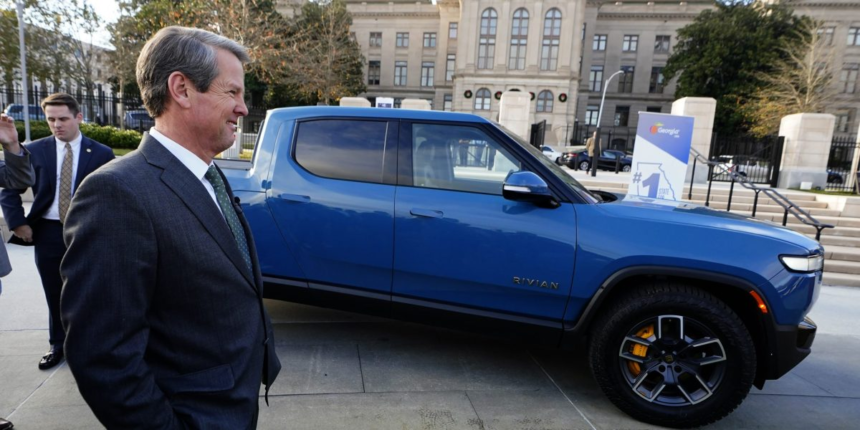Rivian Chief Policy Officer Alan Hoffman said the company believes it can sell electric vehicles not for environmental or tax incentive reasons, but because they’re superior.
“We did not build this company based upon federal tax incentives,” Hoffman said. “And we’re going to prove that we’re going to be successful in the future.”
The Illinois plant will begin making smaller R2 SUVs next year, with prices starting at $45,000. An expanded Illinois plant will be able to assemble 215,000 vehicles yearly. But if the R2 is a hit, and if Rivian successfully produces an even smaller R3, it will need more capacity. The company has said the Georgia operation will be able to make 200,000 vehicles yearly starting in 2028. It plans another 200,000 in capacity in phase two, volume that would spread fixed costs over many more vehicles.
The projections would be a big leap from the 40,000 to 46,000 vehicles Rivian expects to deliver this year, down from 52,000 last year. The company says it’s limiting production now in part to launch 2026 models.
But excluding Tesla, Rivian is the most successful of the startup automakers.
The company initially tapped a largely unfilled niche: demand for electric pickups and SUVs. But the competition now includes Ford’s F-150 Lightning and the electric Chevrolet Silverado.
“With all the competition out there in this market and the slowing growth of EVs, it does not play in Rivian’s favor,” said Sam Fiorani, a vice president at AutoForecast Solutions. “However, there still is an EV market out there.”
“I planned on dying and retiring on the front porch and the biggest project in Georgia has to go next door to me, of all places in the country?” asked Eddie Clay, who lives less than a mile away. He says his well water turned mud-choked after excavation at the Rivian site.
“We think that we can compete with anyone out there and that once given the opportunity, we’re going to excel,” he said.
___
St. John reported from Detroit.








